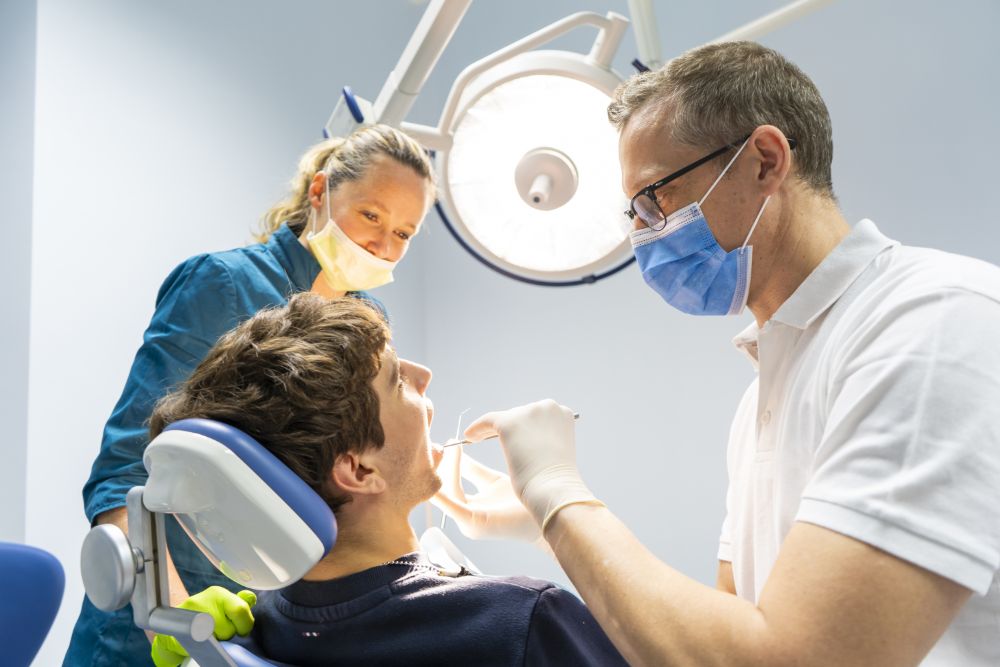If you have been to the dentist recently, you may have been tested for periodontal disease with a probe. It is a painless test that checks the pockets between your teeth for evidence of receding gums or inflammation which are signs of gum disease. It is important to understand the increased risks for periodontal disease and, in turn, how having periodontal disease could worsen the effects of diabetes.
What is Periodontal Disease?
Periodontal disease, also commonly referred to as gum disease, affects your gums and the tissue that holds your teeth together, the periodontal ligament and alveolar bone specifically. When plaque builds up because of bacteria and microorganisms forming in your mouth from food and other particles, it can also cause tartar build up that sticks to the teeth and the surrounding tissue. Although plaque can often be removed by regular brushing and flossing, only a dental hygienist or professional can remove tartar from the teeth and gums.
Causes and Links to Diabetes
While the causes of periodontal disease can vary and are often related to a lack of regular brushing and flossing, people with diabetes are more prone to develop periodontal disease. Diabetes patients are three times more likely to develop periodontal disease because they are more susceptible to inflammation and infection, especially of the periodontal tissue. Periodontal disease can also affect the ability of diabetes patients to control their blood sugar levels. In severe cases, periodontal disease can increase blood sugar levels, which increase the risk for people with diabetes to experience complications.
Diagnosis of Periodontal Disease
Some of the symptoms of periodontal disease includes red or swollen gums, bleeding, gum tenderness, persistent bad breath, sensitive or loose teeth, receding gums, and pain while chewing. If you notice any of these symptoms, it is probably time to schedule a visit with your dentist to check for periodontal disease.
Your dental hygienist can diagnose periodontal disease at your dental visit by examining your gums and noting any signs of these symptoms. Dental hygienists may also take an x-ray to check for bone loss or refer you to a periodontist, an expert in the diagnosis and treatment of periodontal disease who would be able to provide you with specific treatment options that your dentist might not offer.
Periodontal Disease Treatment
All treatment for periodontal disease requires a thorough cleaning to get rid of any tartar and bacteria. Dentists may also suggest that patients change certain behavior such as quitting smoking to control the infection in their gums.
For some cases, patients may be prescribed medications, including antibiotics. In very severe cases, patients may need surgery to repair the damage from periodontal disease. However, the best option is to avoid periodontal disease with regular brushing and flossing and regular visits to your dentist for deep cleaning of the teeth and surrounding tissue.
Ready for Your Dental Appointment?
Before you get the procedure done, you should make sure that you get all the information about the process. Having an experienced cosmetic dentist perform the procedure will help to ensure that you get the results you want. Check out the testimonials from our satisfied customers. Call Dr. Alex Rubinov at (718) 253-0800 today to make an appointment.

